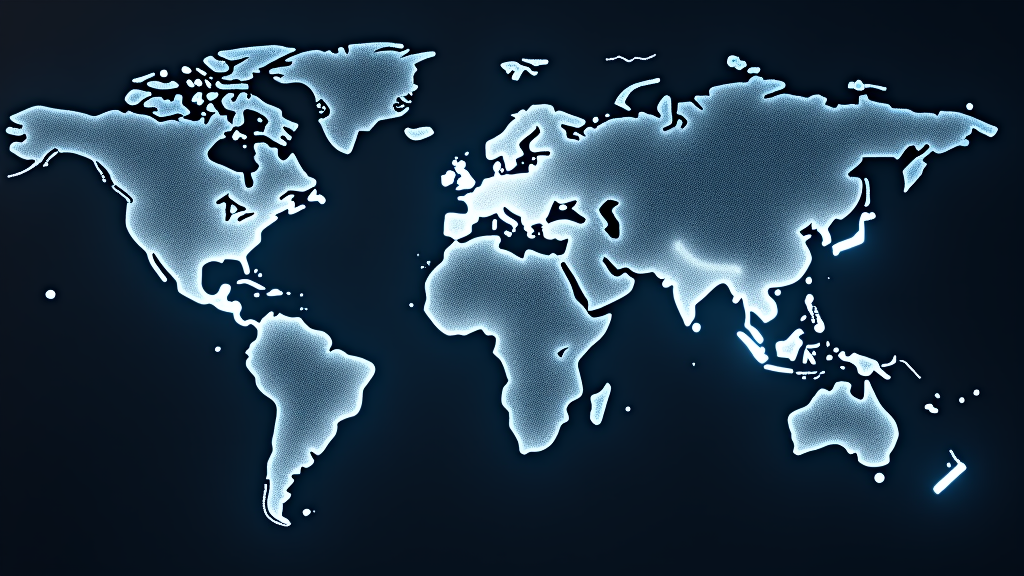Figuring out who dominates the internet search market is a bit like peeking behind the curtain of how our whole digital world works. Search sits at the core of how we find information, stumble upon businesses, and stay informed. The search landscape has mixed things up over the years, with new platforms and AI-powered tools making moves. Yet, some familiar names still hold a giant share of the space. Here’s my deep dig into the state of the search market share, plus what the rise of AI platforms really means for users and creators.
How the Search Engine Market Looks Right Now
Internet search functions like a utility that billions turn to every day, but only a handful of companies handle most of the action. Market share measures the slice of all search queries that each company’s platforms get across the globe. Over the last decade, the balance hasn’t switched up dramatically, but some brands stand out in the global numbers, and a couple of underdogs have unique strengths you might miss if you don’t look closer.
The Big Players in Global Search
- Google: Globally, Google takes the crown with over 90% of the search market share. Its lead grows even more on mobile devices.
- Bing: Bing, owned by Microsoft, typically hovers around 3% globally, but its usage rises in the United States and the UK.
- Baidu: Baidu leads in China, with a search market share there between 60–80%, depending on the source. Outside China, Baidu just doesn’t show up because of internet controls.
- Yahoo: Once on top, Yahoo now mainly taps into Bing for its search results. It holds about 1–2% globally and does best in Japan.
- Yandex: Yandex rules in Russia and nearby countries, reaching Russian market share heights above 45%. Globally, it remains well under 1%.
- DuckDuckGo: DuckDuckGo focuses tightly on privacy and has a dedicated following in the US and Europe. Globally, its share is under 1%, but its promise of privacy wins fans in particular circles.
Google’s lead is so huge that “Googling” has become a verb in plenty of countries. However, in certain regions and for specific use cases, local engines like Baidu and Yandex are the go-to options you just can’t ignore.
Turn Your Passion into Earnings
Get the Tools, Training and Support you need. All in One Place
Join a a Vibrant and Global Community of
Marketers and Entrepreneurs from Around the World
What’s Fueling Google’s Dominance?
Google holds the edge for a few simple reasons: it’s fast, it’s relevant, and it offers a full ecosystem of tools. Whenever I search, Google doesn’t just spit out links. It gives me answers, directions, images, and even live sports scores. Its algorithms keep getting smarter. With Android, Chrome, and Google Assistant tightly connected, Google is right there on nearly every device, especially smartphones, where it’s the default for billions. That keeps people from even looking for alternatives.
Bing manages to stand out by being the default search for Microsoft’s products, including Windows, Edge, and Xbox. Many users also like the sharp image and video search features. While Yahoo doesn’t pull the numbers it once did, it remains a default choice for news and email, especially in Japan. Baidu and Yandex build around local languages and government rules, making them tough for outsiders to challenge on their own turf.
How the AI Boom Is Changing Search
The last two years have been a whirlwind thanks to AI platforms that go beyond old-school search. Tools like ChatGPT (by OpenAI), Gemini (earlier Bard, by Google), Perplexity AI, Claude (by Anthropic), and Microsoft’s Copilot (built into Bing) are shaking up how folks get information.
Instead of just giving you links, these AI tools sum things up, answer complex questions, and even help users write emails or brainstorm. Lots of people now use AI for tasks they would’ve used a search engine for, like product research or generating content. Here’s how the leading AI platforms stack up now:
- ChatGPT: Handy for general advice, brainstorming, coding help, and replies that sound human, though it can miss recent info unless hooked to the internet.
- Perplexity AI: Great for giving direct, cited answers by blending live web results with an AI interface. It’s a go-to for quick, sourced research.
- Google Gemini: Deeply tied into Google Search and other Google services. Use it for AI-crafted summaries, drafts, and handy snippets.
- Microsoft Copilot: Directly in Bing, Copilot merges AI chat with Bing’s search results and web sources.
- Claude: Growing fast for creative writing and summarization. Its knowledge base is on the rise, though live web integration is still coming into its own.
The growth of these platforms means people sometimes skip search engines altogether, jumping straight to an AI chatbot for a direct, custom answer.
Use Jaaxy Platform for keywords and market research
Traditional Search Engines vs AI: What’s the Real Difference?
Search engines like Google or Bing crawl and index gigantic numbers of web pages, surfacing the ones most likely to answer your question. They depend on site content, links, user interactions, and loads of algorithm magic, that’s a big reason SEO (Search Engine Optimization) is such a hot area for creators.
AI platforms, especially large language models, pull from mixed sources: crawled data, structured info, and machine learning. Many now pull in live internet content, too. What sets them apart is the response method. Traditional search gives you a list of links; AI tries to “talk” to you, serving up an answer, summary, or first draft.
- Precision: Search engines rock for deep research or tracking down exact sites. AI is better when you want summaries, creative prompts, or back-and-forth help.
- Transparency: Search shows sources for every result. AI sometimes cites, but can also churn out text without always making the sources obvious.
- Up-to-date Info: Search engines update nonstop. AI models might lag behind unless directly plugged into the live web.
- Multimodal Search: Plenty of AI tools work with images, voice, and docs, not just text. Some search engines are trying to keep up, but AI moves quicker here.
Both methods shine in different scenarios, and you’ll often use both on the same day. I check Google for breaking news or facts, then hop over to ChatGPT or Perplexity if I want summaries, creative ideas, or deep answers on tough topics.
Summary: Search Market Share and the Future of Search
The world of search engines is still commanded by Google, with Bing, Baidu, and a handful of others filling out most of the rest depending on location. AI-powered platforms now step up with new ways to search and stumble upon information, mixing up how everyone gets answers online.
No AI platform has pushed Google out of the top spot yet. Still, for content questions, productivity, and brainstorming, these AI tools draw tons of attention and plenty of visitors. The distinction between what’s a search versus what’s just a chat is getting really blurry these days.
Key Takeaways: What to Know in the Modern Search Era
- Google is far and away the global search engine leader, but local giants like Baidu in China and Yandex in Russia really matter on their own turf.
- Bing and Yahoo keep meaningful chunks of search share, getting a boost from default placements and brand familiarity.
- AI-centered platforms such as ChatGPT, Perplexity AI, and Copilot are spreading quickly, especially for chat, research, and writing needs.
- Traditional search engines bring up lists of websites and thrive with complex searches, while AI stands out for summaries, generated content, and chat-like help.
- The next wave will likely blend both AI and search, people will swap between them depending on the job at hand.
Looking for a training platform that actually works?
I’ve put together a full walkthrough of the affiliate marketing training that helped me build everything I have today. It’s practical, beginner-friendly, and you can try it out for free to see if it suits you.
Take a look at my honest review and see if it’s the right fit for you.
What Content Creators Should Do Next
Making your content pop in today’s search and AI-driven world seems like a big task, but a few key steps really help you get noticed:
- Give clear, helpful answers: No matter if your work lands on Google, Bing, or pops up via AI, making sure it solves real user questions in plain language is essential.
- Use obvious sources: AI tools especially like content that’s neatly organized and clearly referenced. Break things into lists, tables, and handy FAQs where you can.
- Freshen up your content often: Both AI and search engines crave recent info, so go back and update older posts on a regular schedule.
- Test your content on AI-powered search: Check how your site performs on tools like Perplexity or with Bing’s Copilot. This will help you spot any missing pieces or new traffic opportunities.
- Mix in some variety with new formats: Because more people want summaries, fast tips, and multimedia answers, exploring fresh content types can set your work apart.
The search world keeps changing, with longtime leaders holding ground and new AI tools stirring up how people search and create. Staying alert to trends and regularly testing your content across both search engines and AI platforms is key for getting ahead online and keeping your work relevant in a shifting web landscape.





